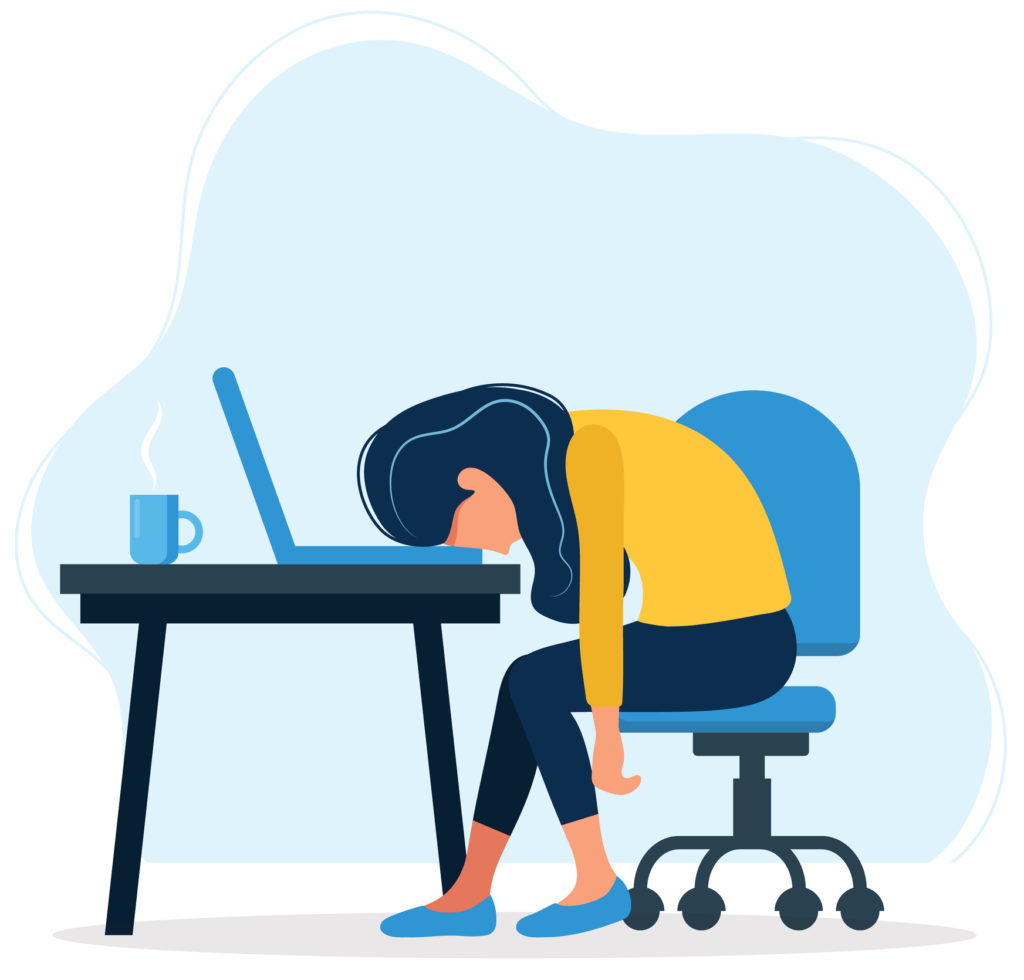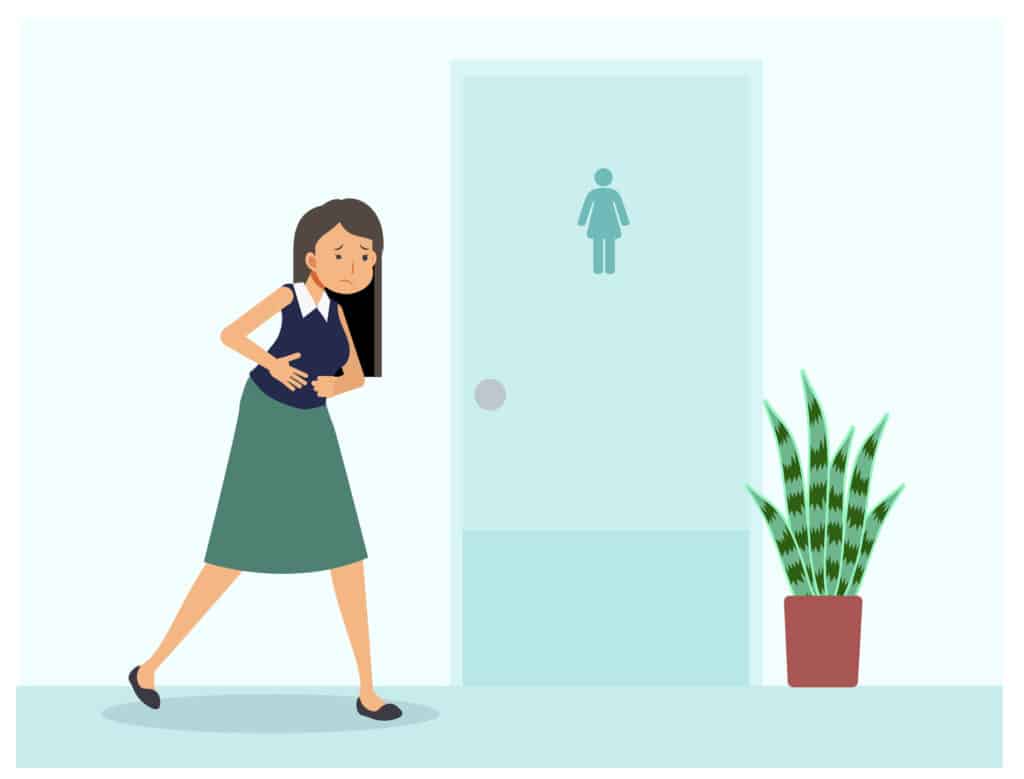Do you feel “bone-tired”?
Like, you are tired, right down to your bones and more tired than you’ve ever felt before? It might seem like an odd connection, but there are several reasons why a pelvic organ prolapse might be causing you to feel that way.
Medical data reveals that more than one-third of women are affected by pelvic organ prolapse or related conditions in their lifetime. In addition, pelvic floor disorders are among the most common gynecological issues seen in women.
But even though your Great Aunt or even a dinosaur-like doctor may have led you to believe that prolapse is “just how it is” – after childbirth. In the 21st century, that isn’t true. As a women’s health specialist, I can do a lot to fix pelvic organ prolapse and cure your fatigue.
What Is the Pelvic Floor?
And Why Is It Important?
The mysterious but much-talked-about pelvic floor muscles are the internal muscles we’re targeting when we do “Kegels.”
The term pelvic floor refers to a collection of muscles and connective tissue that supports and “holds up” the organs in the pelvic region. It can be helpful to imagine the pelvic floor as a hammock or sling. The organs that the pelvic floor supports include the vagina, bladder, rectum, small bowel, and womb.
Even though you can’t see or touch them, you can ‘lift” the pelvic floor by tightening the muscles in your vagina. Try it.
Unfortunately, at certain times in a women’s life, these tissues and muscles can develop defects. We call these defects pelvic floor disorders. They’re common after childbirth and labor, but they’re also common in older-aged women who may or may not have had children. When problems occur in the pelvic floor, it can impair the proper functioning of one or more organs supported by the pelvic floor, such as the bladder or bowel.
Some of the most common pelvic floor disorders I see are:
- Prolapses
- Urinary incontinence, loss of bladder control
- Fecal incontinence, loss of bowel control
What Is A Pelvic Organ Prolapse?
A prolapse happens when the organs droop or descend. A pelvic organ prolapse occurs explicitly when one of the pelvic organs (the vagina, rectum, bladder, uterus, or small bowel) moves out of its normal position. Presses downwards and protrudes into or out of the anus or vaginal canal.
We refer to these conditions as the following:
Cystocele: This is the most common type of pelvic organ prolapse, in which the bladder descends into the vagina.
Vaginal vault prolapse: This happens when the top of the vagina drops and slumps down.
Enterocele: This is a prolapse of the small bowel when the small intestine descends and encroaches on the top of the vagina.
Uterine prolapse: This is a prolapse of the womb when it sags down and protrudes into the vagina.
Rectocele: Is a prolapse of the rectum when it slips down into, and sometimes out of, the anus.
Urethrocele: This type of prolapse occurs when the urethra (urinary tube) prolapses and presses into the vagina.
What Causes a Pelvic Organ Prolapse?
A rise in abdominal pressure can often cause the pelvic organs to prolapse. Some of the most common reasons for this are:
- Pregnancy and childbirth (most common)
- Respiratory issues accompanied by a chronic cough
- Constipation
- Removal of the uterus via surgery (hysterectomy)
- Pelvic organ cancer
- Obesity
In some cases, women genetically inclined to have weaker connective tissues may also be prone to pelvic organ prolapse.
What Are The Symptoms of Pelvic Organ Prolapse?
While some women have no symptoms at all, others have the following symptoms:
- A dull ache in the lower back
- Pressure or “fullness” in the pelvic region
- A sensation that the vagina is protruding out
- Urinary incontinence with a constant urge to urinate
- Constipation
- Experiencing pain during intercourse
- Unusual bleeding from the vagina
- A sensation of something dropping out of the vagina
Pelvic organ prolapse symptoms vary according to the organ that prolapses. For example, there is constant backache and discomfort when indulging in intercourse in a uterine and small bowel prolapse. With a bladder prolapse, urinary incontinence may manifest itself. In rectum prolapse, you may experience constipation and pain during sex.
Physical Therapy: The Benefits For Pelvic Organ Prolapse
If you’re seeking long-term relief from the symptoms of Pelvic Organ Prolapse. Work with a specialist physical therapist who can help you relieve stress, tension, and abdominal pressure and help you strengthen the core and pelvic floor muscles. This approach, combined with home exercises – set by your physical therapist, can be revolutionary in treating the symptoms of pelvic organ prolapse and other pelvic floor disorders.
Physical therapy works for pelvic organ relapse through unique exercises and muscle and joint manipulation that targets the abdomen and the lower back muscles. These form the core. Apart from exercises, your PT will share breathing techniques and teach you how to maintain proper posture, which all help to relieve the symptoms.
To strengthen the core, we teach exercises like side planks. They involve lying on the side with the feet and head straight, with the elbow below the shoulder and the legs bent. Then use the abdomen muscles to slowly lift the hips off the floor while keeping the spine and hips straight. But regular exercises like sit-ups or crunches can aggravate your pelvic organ prolapse symptoms because of the pressure exerted on the pelvic floor region. So, apart from the exercises, we also teach you how to carry out your daily routine without exerting additional strain on the pelvic floor muscles.
We may also use electric stimulation for the pelvic floor. For example, PTNS (Percutaneous tibial nerve stimulation) involves sending an electrical impulse to the ankle to stimulate the nerves responsible for bladder control.
The objective of undergoing physical therapy for pelvic organ relapse is to reduce and treat the symptoms and prevent the condition from worsening. Therefore, as soon as your symptoms improve, it is a sign of the effectiveness of physical therapy.
While undergoing therapy, your PT will recommend avoiding high-impact movements like jogging or jumping for the first few weeks. After that, physical therapy generally continues 6-8 weeks until you’re feeling better and well acquainted with all the movements we recommend and can do them independently. After that, you need to continue doing these exercises and attend maintenance appointments to maintain the results and prevent a reoccurrence.
Physical therapy and associated treatments are especially beneficial for minor pelvic organ prolapse. Still, some women may require surgery for more severe cases. Weight loss and getting treatment for a long-lasting cough or constipation, which strains the pelvic floor, can also be helpful.
NB. If you’re not sure whether your symptoms are related to pelvic organ prolapse, we recommend you book a consultation with an OBGYN first to get a diagnosis (and rule out other more severe causes) if you’re experiencing any of the following symptoms:
- You experience pain or discomfort during sex
- You feel a permanent sense of discomfort in the pelvic area
- You experience urinary incontinence or difficulty in urinating or defecating
- You feel or see a bulge descending through the vagina
Your doctor may also prescribe things like a vaginal pessary device to provide support for the pelvic organs. But importantly, you can still attend physical therapy sessions if you’re using one of these devices.
Why Does Pelvic Organ Prolapse Cause Fatigue?
Whenever something is “off.” Your body notices and works hard to regain homeostasis – or biological stability. Unfortunately, this process starts a cascade of immune-related symptoms, which feel like you’re coming down with something and cause intense fatigue. This cause of fatigue, of course, is especially likely if your prolapse is a result of illness or surgery.
But in my experience, most of the fatigue-related symptoms in pelvic organ prolapse cases are related to psychological effects. It’s no fun to have your pelvic organs protruding into places they’re not supposed to be, especially if you’re the type of person who values good health. Right?
But I believe it goes deeper than that. So many pelvic organ prolapse patients tell me the condition makes them feel ashamed, so they keep it to themselves and don’t talk about it. Sometimes, even keeping it from their partner. And their libidos are shot, sex lives non-existent, and their relationships are usually hanging on by a thread. Shame is exhausting, and it’s a heavy burden to carry. But you can exhale – and get a good night’s sleep tonight, probably for the first time in months. This clinic is a safe space – I help women suffering from various types of pelvic organ prolapses every day. So, drop your shame right here at the door – and we’ll get down to the serious business of helping you get your life back and making you smile again.
What are you waiting for? Let’s chat.
Tell me where it hurts, and I’ll explain how I can help you. Your condition is nothing to feel embarrassed about. Pelvic organ prolapse does not make you a freak of nature.
Book your free, no-obligation consultation now.









